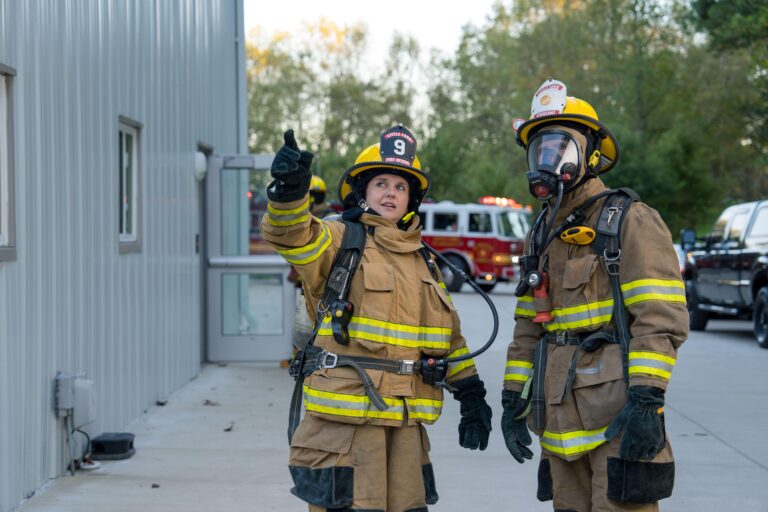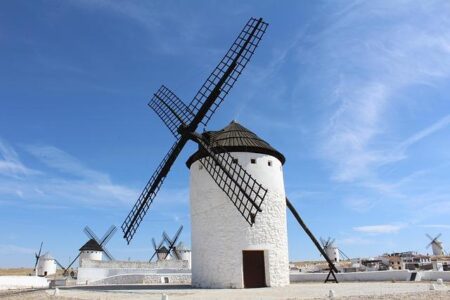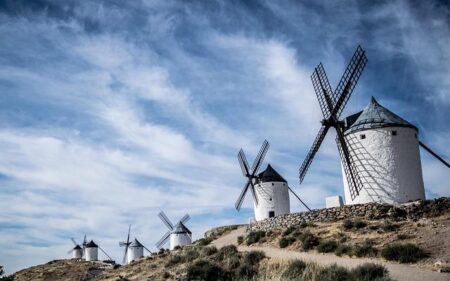Thousands of firefighters are currently engaged in a massive operation to contain widespread wildfires raging across Spain and Portugal. As scorching temperatures and dry conditions fuel the blazes, emergency services face a daunting challenge to protect communities, natural reserves, and infrastructure. This ongoing crisis highlights the escalating threat of climate-driven wildfires in the Iberian Peninsula, prompting urgent calls for enhanced prevention and response strategies.
Wildfires Rage Across Spain and Portugal Straining Firefighting Resources
Firefighters across Spain and Portugal are confronting some of the most aggressive wildfire conditions in recent memory. The combined efforts of over 3,000 personnel, supported by aerial units and heavy machinery, are battling flames that continue to spread rapidly due to prolonged drought and temperatures soaring above 40°C (104°F). Emergency services have been stretched thin as multiple large-scale blazes affect both rural and forested areas, causing widespread evacuations and significant damage to properties and ecosystems. Regions most affected include Andalusia, Castilla-La Mancha, and parts of northern Portugal, where winds have exacerbated the fire’s speed and intensity.
Authorities have issued urgent calls for public cooperation, emphasizing the need to avoid any activities that might trigger new fires during this vulnerable period. The deployment includes:
- Helicopters and water bombers: Conducting continuous aerial water drops to contain the fire fronts.
- Ground crews: Establishing firebreaks and performing mop-up operations to prevent flare-ups.
- Evacuation teams: Assisting vulnerable communities with timely relocations and safety measures.
| Region | Firefighters Deployed | Area Affected (ha) | Status |
|---|---|---|---|
| Andalusia | 1,200 | 15,000 | Active |
| Castilla-La Mancha | 900 | 10,500 | Contained |
| North Portugal | 1,000 | 12,000 | Active |
Challenges Faced by Firefighters Highlighted by Extreme Weather Conditions
Extreme weather events have significantly intensified the operational demands placed on firefighting units across Spain and Portugal. Sweltering temperatures combined with prolonged droughts create tinderbox conditions, causing wildfires to ignite faster and spread with alarming speed. Firefighters battle not only the flames but also the relentless heat, which strains their physical endurance and puts their health at serious risk. The rugged terrain and smoke-choked air further complicate efforts, requiring highly coordinated strategies and real-time adjustments to contain multiple blazes simultaneously.
Key challenges faced include:
- Rapid fire escalation: Dry vegetation and strong winds accelerate fire spread, reducing reaction time.
- Equipment limitations: Extreme conditions lead to equipment overheating and increased wear.
- Communication hurdles: Smoke and terrain interrupt radio signals, affecting coordination.
- Health risks: Dehydration, heat exhaustion, and respiratory issues threaten firefighter safety.
| Challenge | Impact | Mitigation Strategy |
|---|---|---|
| Rapid fire escalation | Reduced containment windows | Deploy fast-response teams |
| Equipment limitations | Increased downtime | Regular maintenance and spares |
| Communication hurdles | Operational delays | Use of satellite communication |
| Health risks | Lowered workforce capacity | Scheduled rest and hydration breaks |
Urgent Calls for Enhanced Forestry Management and Community Preparedness
As wildfires continue to ravage vast areas across Spain and Portugal, experts are emphasizing the critical need for improved forestry management practices. Decades of insufficient maintenance, combined with climate change-induced droughts and soaring temperatures, have created ideal conditions for uncontrollable fires. Specialists call for a multi-pronged approach involving the restoration of natural firebreaks, controlled burns to reduce excess vegetation, and the reforestation of native species adapted to local conditions.
Equally imperative is the enhancement of community preparedness to mitigate the human and environmental toll of these disasters. Local governments and organizations are urged to implement:
- Comprehensive early warning systems with real-time updates
- Public education campaigns on fire safety and evacuation protocols
- Development of local volunteer firefighting brigades with proper training
- Infrastructure improvements such as fire-resistant building materials and emergency access routes
| Action | Expected Impact | Timeline |
|---|---|---|
| Controlled Burns | Reduction of fuel loads | 1-3 years |
| Community Training | Faster response times | Ongoing |
| Early Warning Systems | Improved evacuation efficiency | 6-12 months |
| Native Species Reforestation | Enhanced ecosystem resilience | 3-5 years |
In Conclusion
As wildfire seasons grow increasingly severe, the ongoing efforts of thousands of firefighters in Spain and Portugal underscore the urgent need for enhanced prevention and response strategies. Authorities continue to monitor the situation closely, prioritizing the safety of affected communities and the preservation of vital natural resources. Euronews will keep following developments as crews work tirelessly to bring the blazes under control.




